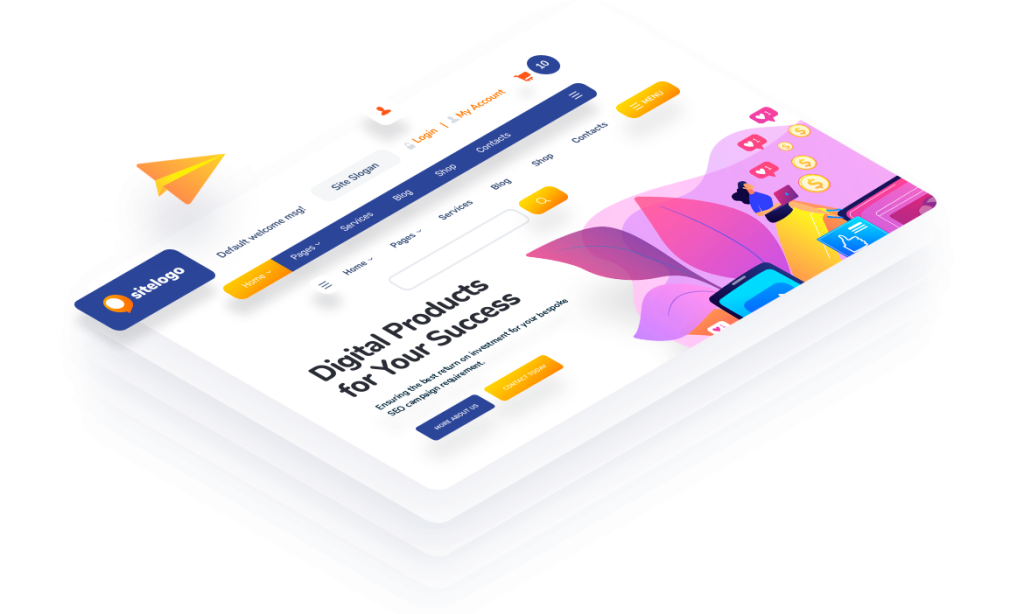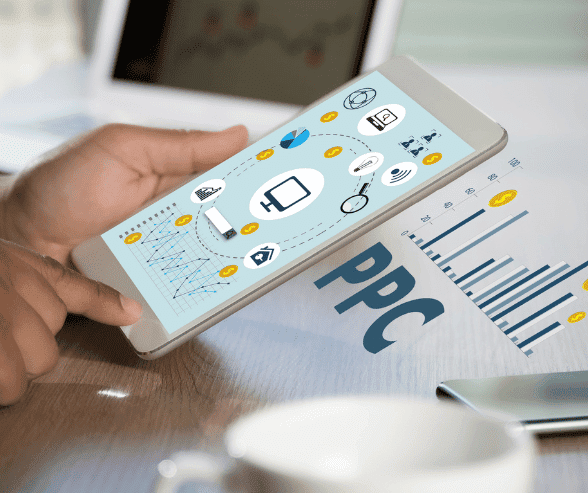Why Search Ad Extensions Matter: Maximize Advertising Potential
Introduction
In today’s competitive online advertising landscape, businesses are constantly seeking ways to enhance the effectiveness of their search ads. Search ad extensions have emerged as a valuable tool to achieve this objective. These extensions provide additional information and functionality to your ads, making them more relevant, engaging, and impactful. In this article, we will explore why search ad extensions matter and how they can significantly enhance the performance of your advertising campaigns.

1. Increasing Visibility and Standout
Ad extensions play a crucial role in increasing the visibility of your search ads. By incorporating additional information, such as sitelinks, callouts, and structured snippets, your ad occupies more space on the search engine results page (SERP). This increased ad real estate helps your ad stand out from competitors and attracts the attention of your target audience. With enhanced visibility, you have a greater chance of capturing user interest and driving valuable clicks.
2. Improving Click-Through Rates (CTR)
One of the primary objectives of any advertising campaign is to generate clicks and drive relevant traffic to your website. They contribute significantly to improving click-through rates (CTR). Extensions provide extra details that are relevant to user search queries, making your ad more appealing and informative. For example, including call extensions with a clickable phone number allows users to contact your business directly, resulting in higher CTR and potential conversions. Improving Click-Through Rates (CTR) in search ad extensions can contribute to a higher return on investment (ROI) by increasing the number of clicks and potential conversions. Here are some strategies to improve CTR and maximize the ROI.
3. Enhancing Ad Relevance and Quality Score
Ad extensions contribute to the overall relevance of your search ads. When search engines like Google determine the position of your ad on the SERP, they consider factors like ad relevance and quality score. By utilizing extensions that align with your business offerings and user intent, you can improve the relevance of your ads. This, in turn, positively impacts your ad’s quality score, leading to higher ad positions and lower costs per click.
4. Providing Additional Information
Search ad extensions offer the opportunity to provide users with more information about your business, products, or services. Sitelink extensions, for instance, allow you to include additional links to specific pages on your website. This enables users to navigate directly to relevant landing pages, enhancing their user experience and increasing the likelihood of conversions. By offering supplementary details through extensions, you can effectively communicate your unique selling propositions and capture user interest.
5. Encouraging User Engagement
The goal of any advertising campaign is to prompt user engagement and drive valuable actions. Search ad extensions facilitate user engagement by offering interactive elements within your ads. For instance, including review extensions allows you to showcase positive feedback and social proof, instilling confidence in potential customers. Additionally, call extensions enable users to contact your business with a single click, encouraging immediate interaction. By leveraging these interactive extensions, you can increase user engagement and drive conversions.
6. Catering to Mobile Users
With the growing prominence of mobile devices, catering to mobile users has become crucial for advertising success. Search ad extensions provide valuable opportunities to optimize your mobile ads. Mobile-specific extensions like click-to-call or location extensions enable users to quickly connect with your business or find your physical location. By tailoring extensions to suit mobile user needs, you can enhance the mobile experience and improve the performance of your mobile advertising campaigns.
7. Gaining Competitive Advantage
In a highly competitive digital landscape, whether its a b2c or a b2b company ,gaining a competitive advantage is essential. By utilizing search ad extensions effectively, you can differentiate your ads from competitors and establish a stronger online presence. Extensions provide additional value and information, making your ads more attractive and informative to users. Standing out from the crowd with compelling extensions can give you an edge and increase the chances of capturing user attention and clicks.
Conclusion
Search ad extensions offer significant benefits to advertisers looking to maximize the potential of their advertising campaigns. By increasing visibility, improving click-through rates, enhancing ad relevance, providing additional information, encouraging user engagement, catering to mobile users, and gaining a competitive advantage, search ad extensions play a vital role in driving the success of your online advertising efforts. When used strategically and aligned with user intent, ad extensions can help you stand out, capture user interest, and drive valuable actions.
B2B Digital Marketing in 2023
Introduction
In today’s digital landscape, B2B digital marketing plays a pivotal role in driving business growth and establishing a strong online presence. With the ever-increasing competition, it has become essential for companies to leverage effective digital marketing strategies to reach their target audience and generate qualified leads. In this comprehensive guide, we will delve into the world of B2B digital marketing, exploring its various facets and providing actionable insights to help your business thrive in the online realm.

Understanding B2B Digital Marketing Agencies
B2B digital marketing refers to the strategies and tactics employed by businesses to promote their products or services to other businesses. Unlike B2C (Business-to-Consumer) marketing like Full Stack Digital Marketing Agencies, focuses on establishing long-term relationships, nurturing leads, and driving conversions within a professional context. It involves utilizing various digital channels and techniques to engage with decision-makers, influencers, and key stakeholders within the target organizations.
The Importance of B2B Digital Marketing
In today’s technology-driven world, B2B digital marketing offers numerous advantages for businesses seeking growth and expansion. Here are some key reasons why B2B digital marketing is crucial:
1. Increased Reach and Visibility
Digital marketing allows businesses to reach a wider audience through various online channels. With the right strategies in place, you can extend your brand’s visibility and attract potential customers from across the globe. By optimizing your website and content for search engines which is called Search Engine Optimization(SEO), you can increase your organic reach and improve your chances of ranking higher in search engine results.
2. Targeted Marketing Approach
B2B digital marketing enables businesses to target specific industries, job titles, or geographical locations, ensuring that your marketing efforts are directed towards the right audience. By tailoring your messaging and content to resonate with the needs and pain points of your target market, you can establish credibility and build trust among potential customers.
3. Lead Generation and Nurturing
One of the primary objectives of B2B digital marketing is to generate high-quality leads and convert them into paying customers. Through various lead generation techniques such as content marketing, social media marketing(SMM), and email marketing, you can capture valuable information from potential customers and nurture them through the sales funnel. This helps in building relationships, establishing authority, and ultimately driving conversions.
4. Measurable Results and ROI
Unlike traditional marketing methods, digital marketing offers extensive tracking and analytics capabilities. With tools like Google Analytics and marketing automation platforms, you can measure the effectiveness of your campaigns, track key performance indicators (KPIs), and calculate your return on investment (ROI). This allows you to optimize your marketing efforts based on data-driven insights and make informed decisions to maximize your ROI.
B2B Digital Marketing Strategies
To achieve success in B2B digital marketing, it is essential to implement the right strategies tailored to your business goals and target audience. Here are some key strategies to consider:
1. Content Marketing
Content marketing forms the backbone of any successful B2B digital marketing strategy. By creating and distributing valuable, informative, and engaging content, you can attract your target audience, establish thought leadership, and drive organic traffic to your website. It is crucial to understand your audience’s pain points and create content that provides solutions and addresses their needs. From blog articles and whitepapers to case studies and videos, diverse content formats can be used to engage your audience at different stages of the buyer’s journey.
2. Search Engine Optimization (SEO)
SEO plays a vital role in improving your website’s visibility and driving organic traffic. By optimizing your website and content for relevant keywords and implementing best practices, you can increase your chances of ranking higher in search engine results. SEO services involves on-page optimization, such as optimizing meta tags, headings, and URL structures, as well as off-page optimization, including link building and social media signals.
3. Social Media Marketing
Social media platforms offer valuable opportunities for B2B businesses to connect with their target audience, build brand awareness, and drive engagement. You should identify the right social media channels frequented by your target market. This can create compelling content, participate in relevant industry discussions, and leverage paid advertising to amplify your reach. LinkedIn, in particular, is a powerful platform for B2B networking and lead generation like PADIMR on Linkedin.
4. Email Marketing
Email marketing remains an effective strategy for nurturing leads and maintaining ongoing communication with your prospects. By segmenting your email lists. These can be based on buyer personas and by sending targeted, personalized content, you can deliver relevant messages that resonate with your audience. Automation tools can be utilized to streamline the email marketing process and send timely, triggered emails based on user behavior.
5. Influencer Marketing
Influencer marketing has gained significant traction in the B2B space, enabling businesses to leverage the credibility and reach of industry influencers to promote their products or services. By identifying key influencers in your industry and collaborating with them on content creation or thought leadership initiatives, you can tap into their existing audience and establish brand authority.
The Future of B2B Digital Marketing
Looking ahead, the future of B2B digital marketing holds immense potential. As technology continues to evolve, businesses need to stay ahead of the curve and embrace emerging trends and strategies to remain competitive. Here are some key areas to watch:
1. Voice Search Optimization
With the rise of voice assistants like Siri, Alexa, and Google Assistant, voice search is gaining prominence in the B2B space. Optimizing your content for voice search queries, focusing on long-tail keywords and natural language, can help your business capture voice-driven organic traffic and stay ahead of the competition.
2. Augmented Reality (AR) and Virtual Reality (VR)
AR and VR technologies are becoming more accessible, offering exciting possibilities for B2B digital marketing. Businesses can leverage AR/VR to provide immersive product demonstrations, virtual tours, and interactive experiences that help potential customers better understand their offerings.
3. Data-driven Decision Making
As data collection and analytics capabilities continue to evolve, businesses will increasingly rely on data-driven decision-making. By leveraging advanced analytics tools and AI algorithms, businesses can extract valuable insights from large datasets, enabling them to make informed marketing decisions and optimize their strategies for better results.
4. Hyper-Personalization
Hyper-personalization goes beyond basic personalization by delivering highly tailored content and experiences to individual buyers. By leveraging customer data, AI, and automation, businesses can create personalized marketing campaigns that address specific pain points, preferences, and behaviors of their target audience.
5. Influencer Partnerships
Influencer marketing will continue to be a powerful strategy in B2B digital marketing. Businesses can form strategic partnerships with industry influencers, leveraging their expertise. This can help reach to amplify brand visibility, build credibility, and attract new customers.
As the digital landscape evolves, businesses must stay agile and adapt to new technologies and trends. By staying informed and embracing innovative strategies, B2B companies can position themselves for success in the ever-changing world of digital marketing.
The Role of Artificial Intelligence in B2B Marketing
Artificial Intelligence (AI) is revolutionizing the field of B2B digital marketing, providing businesses with advanced tools and capabilities to optimize their marketing efforts. AI-powered technologies, such as machine learning algorithms, Chat gpt and predictive analytics, offer valuable insights, content and automation opportunities that can drive significant improvements in marketing performance.
One area where AI is making a substantial impact is lead generation and qualification. By analyzing vast amounts of data, AI algorithms can identify patterns and trends to identify potential high-quality leads. This enables businesses to focus their efforts on the most promising prospects, increasing efficiency and conversion rates.
AI-powered chatbots are also transforming the way businesses engage with their audience. These intelligent virtual assistants can provide instant responses to inquiries, offer personalized recommendations, and even assist with completing transactions. Chatbots not only enhance customer experience but also free up human resources to focus on more complex tasks.
Another aspect of B2B digital marketing where AI excels is personalization. By leveraging AI algorithms, businesses can analyze customer behavior, preferences, and past interactions to deliver highly targeted and relevant content. Personalized marketing campaigns have been shown to significantly increase customer engagement and conversion rates.
Additionally, AI can play a crucial role in optimizing advertising campaigns. AI algorithms can analyze ad performance data in real-time, making adjustments to targeting, bidding strategies, and creative elements to maximize campaign effectiveness and return on ad spend.
As AI continues to advance, it is expected to have an even more significant impact on B2B digital marketing. From predictive customer analytics to automated content generation, AI is reshaping the way businesses reach and engage with their B2B audience.
Conclusion
B2B digital marketing is a dynamic and ever-evolving field that offers immense opportunities for businesses to grow and succeed in the digital realm. By implementing effective strategies such as content marketing, SEO, social media marketing, email marketing, and influencer marketing, you can elevate your brand’s visibility, generate qualified leads, and drive conversions. Remember to continually monitor and optimize your campaigns based on data-driven insights to stay ahead of the competition. Embrace the power of B2B digital marketing and unlock new avenues of growth for your business.
Google PPC Marketing: Maximum ROI Techniques 2023
Google PPC (Pay-Per-Click) advertising is one of the most effective ways to drive traffic to your website and promote your business online. With over 90% of online searches happening on Google, it’s no wonder that Google Ads is the go-to platform for businesses looking to reach their target audience.
In this guide, we’ll walk you through everything you need to know about Google PPC advertising, from setting up your account to optimizing your campaigns for maximum ROI and how combining SEO and PPC can help you achieve better results.

Getting Started with Google PPC Ads
You must set up your first campaign and register an account in order to begin using Google AdWords. Here are the steps you’ll need to follow:
- Create an account: Go to ads.google.com and sign up for a new account. You’ll need to provide your email address and some basic information about your business.
- Set up your billing: You’ll need to provide a payment method to fund your ads. You can choose from a variety of payment options, including credit cards, debit cards, and bank transfers.
- Create your first campaign: Choose the type of campaign you want to run (search, display, or video) and set your budget and targeting options.
Optimizing Your Google PPC Ads Campaigns
Once you’ve set up your campaigns, it’s time to start optimizing them for maximum ROI. The following advice will help you make the most of your Google Ads:
- Choose the right keywords: Use Google’s Keyword Planner tool to find keywords that are relevant to your business and have a high search volume. Make sure to incorporate these keywords into your landing pages and ad material.
- Write compelling ad copy: Your ad copy should be concise, compelling, and relevant to your target audience. Make use of compelling calls to action and emphasize the advantages of your good or service.
- Test your ads: Run A/B tests to see which ad copy and targeting options perform best. Use this information to improve your campaigns’ performance.
How Google PPC Ads Experts Can Help You Optimize Your Campaigns for Better Results
If you’re new to Google Ads or want to take your campaigns to the next level, working with a Google Ads expert can help you achieve your goals. Here are some benefits of working with a Google Ads expert:
- Experience: Google Ads experts have experience running successful campaigns across a variety of industries. They know the best practices and strategies to help you get the most out of your advertising budget.
- Optimization: A Google Ads expert can help you optimize your campaigns for maximum ROI. They can analyze your data and make adjustments to your targeting, ad copy, and bidding strategies to improve your results.
- Time-saving: Running a successful Google Ads campaign takes time and effort. By working with an expert, you can focus on other aspects of your business while they handle your advertising.

Ways SEO and Google PPC Can Help You Achieve Better Results
1. Allocate your paid spend using organic performance insights
: Organic performance insights are useful in helping you manage the gas pedal on your paid campaigns. You can use more gas when organic is underperforming and less gas when organic is winning. Automation can help identify Lone Ranger terms, where you have the top organic spot and no paid competition. This automatic toggle switch might help you save money, particularly if the market for your search terms is unstable. By identifying multiple high-volume Lone Ranger terms, you can save money on budget and still maintain visibility.
2. Shape your content strategy using SEM performance insights
Understanding your paid performance will help you invest in good content that incorporates high-value terms. By using less expensive phrases, you’ll also get the most out of your budget. SEM is a fantastic channel for testing phrases you want to naturally rank for. These SEM insights will help you decide whether expensive paid keywords are better suited for organic search targeting.
3. Crank up your competitive research:
It’s essential to categorize your competition and shape your tactics accordingly. Publications or content makers could be some of your biggest rivals. It’s important to look at the type and format of the content driving competition and find ways to create more value in the resources you provide to your audience. To make sure you are putting money where it will have the biggest impact, utilize SEM insights to find out what your competitors are bidding on and target those areas with PPC or SEO.

Cranking Up Competitive Research and Leveraging PPC Data to Optimize Organic Listings
1. Follow SEO best practices when you create paid campaigns
Duplicate content can sabotage your campaigns. Make sure you’re using unique content, including meta descriptions and titles. Also, use long-tail keywords to make your content more targeted.
2. Use PPC to target high-intent keywords
PPC can help you target high-intent keywords that you’re struggling to rank for organically. By targeting these keywords, you can increase your visibility in search results and drive more traffic to your site. PPC can also help you test new keywords, which you can later incorporate into your SEO strategy.
3. Leverage PPC data to optimize your organic listings
Paid search campaigns provide a wealth of data on user behavior and engagement that can be used to improve your organic search listings. By analyzing which ad copy, landing pages and CTAs perform best in your paid campaigns, you can apply those learnings to your organic listings to improve click-through rates and ultimately drive more traffic to your website. For example, similarly, if you find that a certain ad copy and landing page combination results in a high conversion rate in your PPC campaign, you can use similar language and messaging in your meta descriptions and title tags for the corresponding organic listings. By aligning your messaging across both paid and organic channels, you can create a more cohesive and effective user experience.
Quick Tip:
Google PPC advertising is a powerful tool for businesses looking to promote their products and services online. By following the tips and best practices outlined in this guide, you can set up successful campaigns that drive more traffic to your website and increase your ROI. Remember to test your ads and optimize your campaigns for the best results, and you’ll be on your way to a successful Google Ads campaign in no time.
Conclusion
Driving traffic to your website may be accomplished quite effectively by combining SEO and PPC. By using insights from both channels, you can save money, invest in good content, and target high-intent keywords. Follow SEO best practices when creating paid campaigns, and always keep an eye on your competition. As a result, you can increase your visibility in search results, attract more visitors to your website, and achieve better results.
Additionally, PPC data can help you identify gaps in your organic search strategy. For instance, if you’re not ranking well for a particular keyword in organic search but it performs well in your paid campaigns, that’s a clear indication that you need to invest more in optimizing your content for that keyword. By using PPC data to inform your organic search strategy, you can ensure that your efforts are focused on the areas that will drive the greatest results.
FAQ
The cost of Google Ads depends on a variety of factors, including your budget, bidding strategy, and targeting options. Set a daily spending limit and only pay when someone clicks on your advertisement.
The amount of time it takes to see results from Google Ads depends on your industry, competition, and other factors. In general, you should start to see results within a few weeks of launching your campaigns.
Yes, you can set a daily budget for your campaigns to ensure that you don’t overspend. You can also adjust your bidding strategy and targeting options to optimize your budget for maximum ROI.







